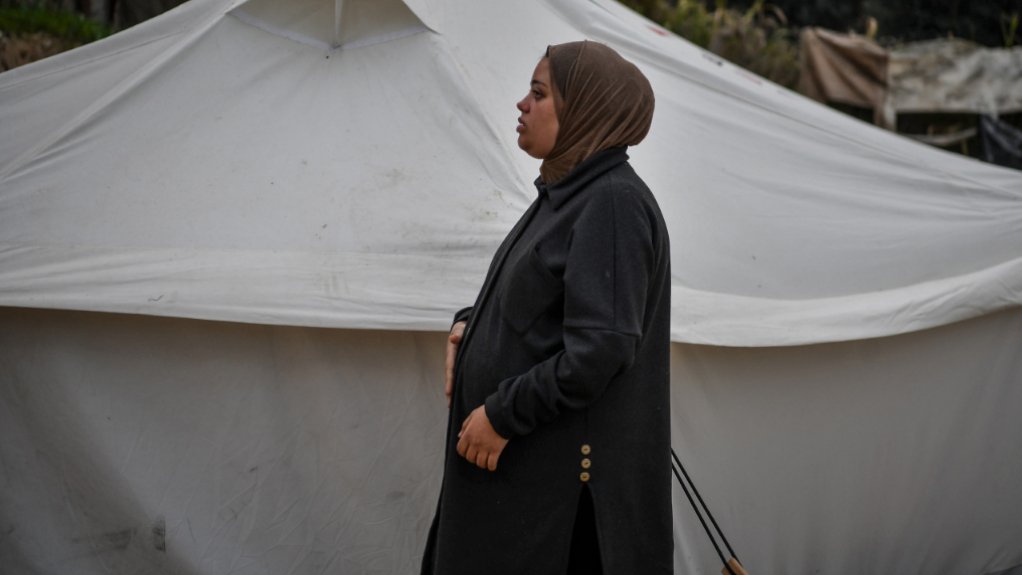- Violations of Pregnant Women’s Rights Amid Israel’s Assault on Gaza1.17 MB
R.M., 31, was two months pregnant when Israel began its military campaign in the Gaza Strip following the Hamas-led attack on southern Israel on October 7, 2023. Her family struggled to find food. “I was literally starving,” she told Human Rights Watch. “We were all in famine in northern Gaza. We had no gas to cook with. We had one meal a day to conserve firewood. … Flour was very, very expensive. No food. No chicken. No meat. I lost a lot of weight.”
She also had health problems: “I already had low blood pressure and would faint a lot. I got lightheaded and dizzy. I had no energy, couldn’t stand on my own.” The family went to Rafah and visited a doctor in his private clinic for a checkup, but he could provide no examination beyond an ultrasound or give her any vitamins or calcium. R.M. suffered multiple urinary tract infections but did not go to a clinic because she had heard they had no medicine.
The fighting complicated R.M.’s difficult delivery on May 5. “I went into labour at 2 am.” she said. “I was in so much pain, and we were trying to find a way to reach the hospital.” She said that at the hospital, she was not given any medication or an epidural. After she delivered, she had to change the pads she was wearing herself. “I went to the bathroom alone. It was terrible, very difficult,” she said. “No one took care of me. Not a single nurse came to check up on me, monitor me, or ask how I was.”
R.M. left the hospital at 6 am, just over four hours after giving birth to a girl. “I was exhausted and couldn’t walk,” she said. “I was holding my newborn, and with my husband and three other children, we had to look for someone willing to drive us [to my parents’ home]. It took hours until a car stopped for us. My husband told the driver we would give him anything [if he drove us].”
A few days later, R.M.’s family was forced to evacuate Rafah for Khan Younis, where they have been living in a tent under harsh conditions. Her newborn daughter quickly developed diarrhea, which can be life-threatening.
R.M.’s difficult pregnancy and delivery reflect the extraordinary challenges faced by many Palestinian women and girls in the Gaza Strip since the beginning of the hostilities. Across Gaza, women have had limited access to safe places to give birth, even when they face a high-risk delivery.
Report by the Human Rights Watch
EMAIL THIS ARTICLE SAVE THIS ARTICLE ARTICLE ENQUIRY
To subscribe email subscriptions@creamermedia.co.za or click here
To advertise email advertising@creamermedia.co.za or click here











